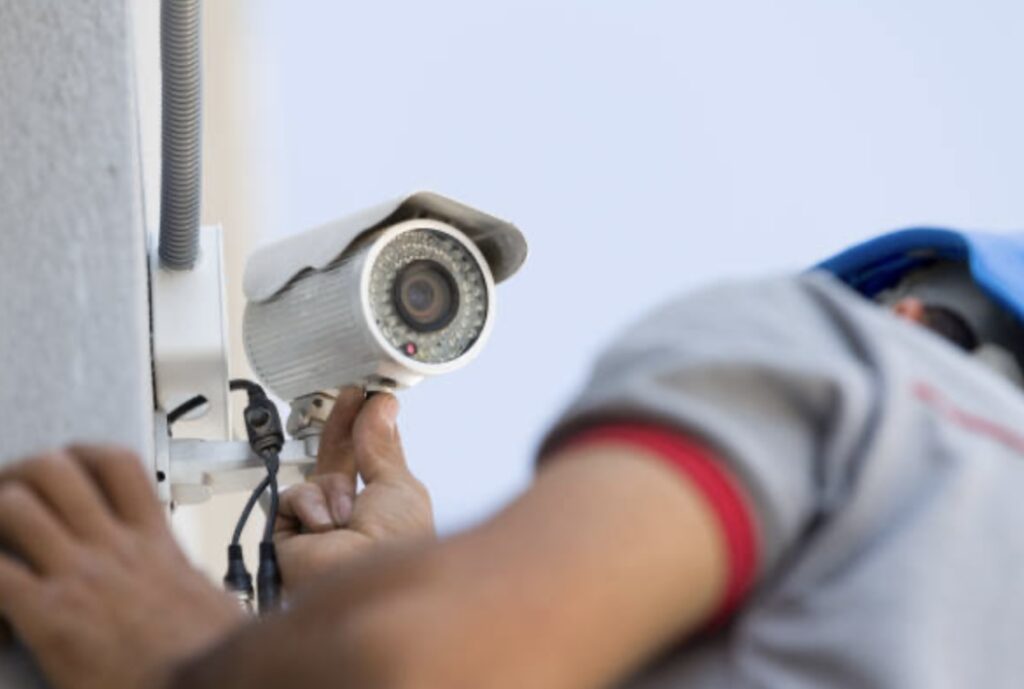Business Security Solutions: How to Protect Your Employees and Assets
Every business, whether a small storefront or a multi-location enterprise, faces security challenges.From safeguarding employees to protecting valuable assets, implementing...
January 13, 2025
When it comes to safeguarding your property, selecting the right security camera system is critical.
Among the many decisions to make, one of the most important is choosing between wired and
wireless camera systems. Each option has its strengths and drawbacks, making it essential to
understand which system best suits your specific needs.
Whether you’re securing your home or running a business, this guide will help you compare wired
and wireless security camera systems, explore their pros and cons, and identify the best solution for
your property.
Wired security cameras are hardwired into your property’s electrical system and connected to a recording device, such as a DVR or NVR, via cables. These systems have been the traditional choice for decades, offering reliable and high-quality surveillance.
Advantages of Wired Systems:
Drawbacks of Wired Systems:
Best For: Businesses or homeowners with large properties who prioritize reliability and high-quality footage.
Wireless security cameras transmit data over Wi-Fi, offering a more flexible and user-friendly alternative to wired systems. These systems have gained popularity due to their convenience and ease of installation.
Advantages of Wireless Systems:
Drawbacks of Wireless Systems:
Best For: Homeowners or small businesses seeking an affordable and easily adjustable security solution.
Property Size and Layout
Integration with Smart Technology
Wired System Installation
Wireless System Installation
Wired Systems:
Wireless Systems:
Wired Systems:
Wireless Systems:
For some properties, a combination of wired and wireless cameras may offer the ideal solution. Known as hybrid systems, these setups allow you to leverage the strengths of both technologies:
Pro Tip: Hybrid systems can be customized to your unique needs, offering the reliability of wired cameras with the convenience of wireless options.
No matter which system you choose, here are some tips to get the most out of your setup:
The choice between wired and wireless security camera systems ultimately depends on your
specific needs, preferences, and property requirements. Wired systems offer reliability and highquality footage, making them ideal for larger properties and businesses. Wireless systems provide
flexibility and ease of installation, making them perfect for smaller properties or those seeking a
modern, smart solution.
Securing your home or business is a crucial investment in your safety and peace of mind. Whether
you choose a wired system, a wireless setup, or a combination of both, the right security solution
will provide the protection you need.
Explore your options, evaluate your property’s needs, and take the first step toward enhanced
security today. With the right system in place, you can rest assured that your property, employees,
and loved ones are safe.

With Cabetto, you don’t just get security you get peace of mind. Our cutting-edge technology, professional monitoring, and rapid response ensure that your home, business, or organization is protected every second of the day.
Every business, whether a small storefront or a multi-location enterprise, faces security challenges.From safeguarding employees to protecting valuable assets, implementing...
Protecting your property, whether it’s a family home or a thriving business, is essential in today’sworld. Security isn’t just about...
Outdoor security cameras have become a must-have for protecting homes and businesses. Theyoffer more than just surveillance; they provide peace...
Sign up to access rebate savings and get exclusive security offers
Get rebates for installing outdoor security cameras on your home, business, nonprofit, or religious property.
Reach out for assistance. Your safety is our priority!